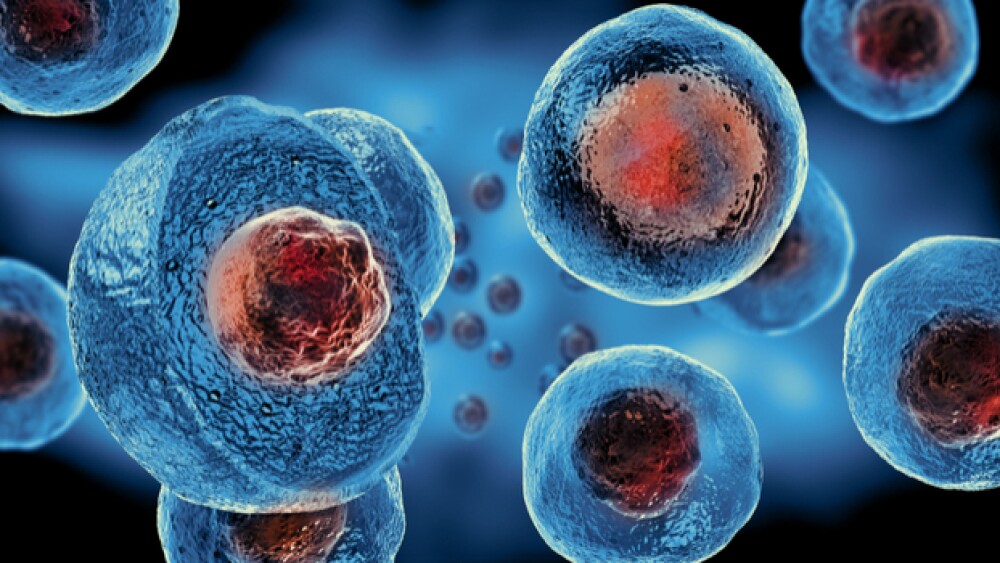In a monumental new breakthrough, scientists in Japan have created an immature human egg using stem cells that were created from blood cells. While immature human eggs have been successfully created in the lab before, this marks the first time that researchers have been able to do it using human blood.
In a monumental new breakthrough, scientists in Japan have created an immature human egg using stem cells that were created from blood cells. While immature human eggs have been successfully created in the lab before, this marks the first time that researchers have been able to do it using human blood. This is a huge step towards creating fully-functioning human eggs in the lab, which will hopefully help people suffering from infertility have children of their own.
As these eggs are immature, they aren’t capable of being fertilized, let alone grow into full children. It will take much more research before scientists can create eggs that are both mature enough and safe enough for use in infertility treatments. However, this remains a very important milestone all the same for not just infertility, but for a whole host of other important applications as well.
Implications
People suffer from infertility for many different reasons. They could be infertile from a birth defect, from cancer treatment, or from any number of other medical issues. Having the ability to grow a human child in a lab will mean many of these people will someday be able to have their own child using their own stem cells taken from their blood.
This also opens up the possibility for reproductive specialists to create as many human eggs as they need in order to restore the supply of eggs in a woman who is undergoing menopause, allowing her to have a child.
Another big area this will be able to help in is for same-sex couples who wish to have a child using their own DNA. Currently, gay and lesbian couples who wish to have kids either have to choose adoption, or use methods such as donor insemination, surrogates, etc. However, this new breakthrough could mean that same-sex couples would be able to take their own blood and have specialists grow their child in a lab.
This development will have a huge impact on research outside of reproduction, as well. Scientists will be able to create human eggs on-demand for use in a variety of different research such as testing what effects, if any, certain drugs have on a human egg.
Ethics
With this new advancement in stem cell research, it raises new questions of ethics regarding the creation of human eggs and, potentially, the creation of a human life that is grown in a lab.
Ethical concerns regarding stem cell usage are nothing new. There have long been heated debates ever since research on stem cells taken from human embryos first began. However, this is less likely to be the area of concern for this particular research as the stem cells come from blood that can be taken from a consenting adult. Where potential ethical problems would arise in this case is with the actual act of growing children in the lab.
Once such concern would be in the case of parents having a child created for the sole purpose of supplying healthy organs in the case of their current child needing them down the line. While this may sound like something out of a science fiction movie, it is a very real concern that some people have. These are referred to as “savior siblings,” and it is an ethical problem that has been brought up before and will only become more pressing as research into lab-grown children moves further along.
Another concern would be regarding the potential for someone to steal another person’s genetic makeup and use it to have a child. Thus, someone could end up being made a biological parent without them ever knowing. This also raises the question of if it’s okay to use stem cells from the recently deceased in order to create a child.
These concerns, among many others, will need to be addressed as the research advances and, eventually, as the knowledge gained from it starts being put into practice. It will no doubt be a controversial topic for many. However, in vitro fertilization was also once controversial and is now widely accepted. It’s possible that the same will someday be said for using lab-grown eggs to create children.
In conclusion
This new accomplishment has great potential and will be an interesting area of research in the years to come. However, there are still many hurdles that scientists still need to overcome before the average person starts to see the benefits from this research. Quite a few of these hurdles involve ethical concerns, as well.
Regardless, this is a monumental step for reproductive research and could potentially bring hope to those who long for the ability to have a child with their own genetic makeup.





